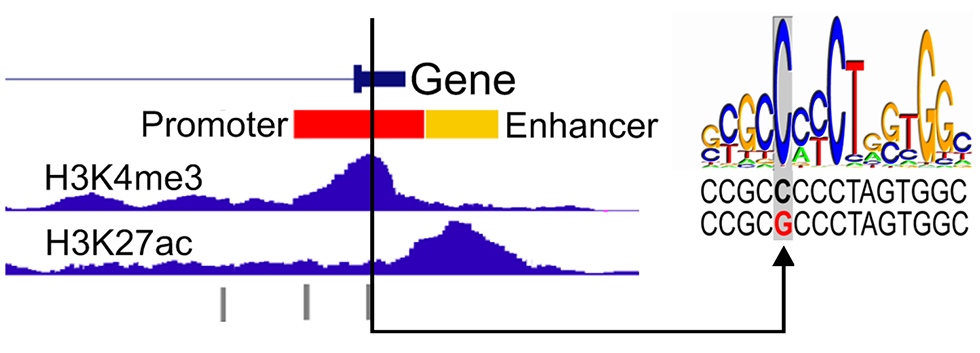Bioinformatics in Space Medicine Group
The working group "Bioinformatics in Space Medicine" was founded in March 2021 and is headed by Dr. Herbert Schulz..
We investigate transcriptional and epigenetic changes in human cells induced by microgravity. The aim is to determine general and cell type-specific gene expression patterns of regulated genes and to model their key pathways. Epigenetic analyses are used to identify the mechanism of gene expression changes and thus the effects of weightlessness. The same methods can also be used to investigate the specifics of cell adhesion and spheroid formation associated with gravity variation.
Gene expression: RNA sequencing and single-cell RNA sequencing
RNA sequencing enables the detection of transcriptome-wide expression changes at different levels. In addition to gene expression, exon skipping, splicing, the quantitative detection of the expression of alternative transcription start sites, and the prediction of individual transcript expression can also be analyzed if the sequencing resolution is sufficient. Single-cell sequencing allows the determination of cell type-specific profiles, particularly when analyzing heterogeneous tissue.
Epigenetic regulation: DNA methylation, ChIP-seq
The regulation of gene expression requires the availability of cis-acting epigenetic elements such as promoters, enhancers, and insulators for regulatory proteins. This availability is dependent on histone modifications and the degree of DNA methylation. Histone modifications and DNA methylation can each be quantified epigenome-wide using chromatin immunoprecipitation (ChIP) or CpG bisulfite conversion..
Conclusion
Combined transcriptional and epigenomic profiling can provide critical insights into the biological processes of response to gravity changes. Predictive modelling of crucial pathways of cell adhesion associated with gravity variation may have implicationsfor precision medicine.
Selected publications
Transcription analyses
- Schulz H, Kolde R, Adler P, et al. (2009). The FunGenES database: a genomics resource for mouse embryonic stem cell differentiation. PLoS One. 2009 Sep 3;4(9):e6804.
Epigenetic analyses
- Schulz H, Ruppert AK, Zara F, et al. (2019). No evidence for a BRD2 promoter hypermethylation in blood leukocytes of Europeans with juvenile myoclonic epilepsy. Epilepsia 60, e31-e36.
- Schulz H, Ruppert AK, Herms S, et al. (2017). Genome-wide mapping of genetic determinants influencing DNA methylation and gene expression in human hippocampus. Nat Commun 8, 1511.
Weightlessness
- Schulz H, Dietrichs D, Wehland M, Corydon TJ, Hemmersbach R, Liemersdorf C, Melnik D, Hübner N, Saar K, Infanger M, Grimm D. (2022). In Prostate Cancer Cells Cytokines Are Early Responders to Gravitational Changes Occurring in Parabolic Flights. Int J Mol Sci. Jul 17;23(14):7876.
- Kopp S, Krüger M, Bauer J, Wehland M, Corydon TJ, Sahana J, Nassef MZ, Melnik D, Bauer TJ, Schulz H, Schütte A, Schmitz B, Oltmann H, Feldmann S, Infanger M, Grimm D (2018). Microgravity Affects Thyroid Cancer Cells during the TEXUS-53 Mission Stronger than Hypergravity. Int J Mol Sci. Dec 12;19(12).
- Kopp S, Krüger M, Feldmann S, Oltmann H, Schütte A, Schmitz B, Bauer J, Schulz H, Saar K, Huebner N, Wehland M, Nassef MZ, Melnik D, Meltendorf S, Infanger M, Grimm D (2018). Thyroid cancer cells in space during the TEXUS-53 sounding rocket mission - The THYROID Project. Sci Rep. Jul 9;8(1):10355.







